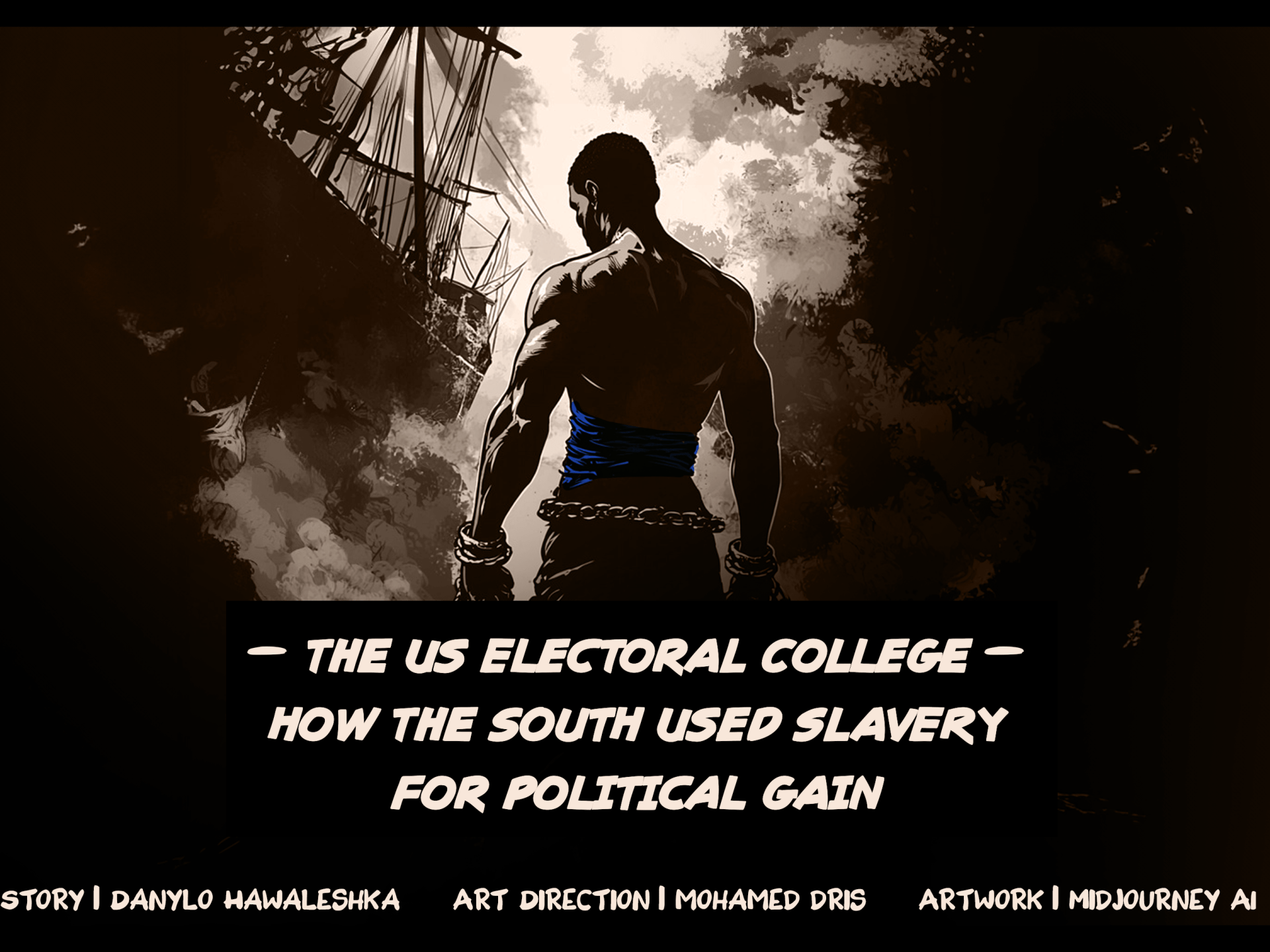

Skip linksSkip to Content
History Illustrated is a series of perspectives that puts news events and current affairs into historical context using graphics generated with artificial intelligence.
The Electoral College gets explained every time there’s a US presidential election, but its origin story, rooted in slavery and the power politics of the South, is often overlooked.
Advertisement
Delegates at the Constitutional Convention in Philadelphia in 1787 were deeply divided. Some argued Congress should elect the president, others said it should be by popular vote. The compromise struck was a process known as the Electoral College.
How it works is there’s a temporary group of electors equal to the number of members in Congress. Technically, the American people don’t elect their president, the electors of the Electoral College do. The system isn’t perfect.
At the time, slavery was the problem. The number of electors each state gets - and therefore how big a say it has in picking the president — is partly based on the number of House Representatives it has, which in turn is based on a state's population.
In 1787, northern delegates opposed to slavery wanted only free people counted in the census, while southern whites wanted to inflate their numbers- and their political influence - by also counting enslaved Black people.
So they compromised, with the House of Representatives, and hence the Electoral College, both based on a state’s free population - plus three-fifths of its slaves.
Advertisement
This “three-fifths compromise” gave the South disproportionate influence in presidential elections. For example, Virginia, with 200,000 disenfranchised slaves at the time, controlled one-quarter of the electoral votes needed to win the presidency.
By protecting the power of slaveholding states, the Electoral College indirectly contributed to the American Civil War. After Abraham Lincoln, a Republican opposed to slavery, won the presidency in 1860, southern states saw their power as waning, and several states seceded.
The US almost replaced the Electoral College with a national vote in 1969, when the House passed a constitutional amendment, only to have it blocked by southerners in the Senate. Today, with the presidential election around the corner, US voters will once again place their faith in a voting system that is anything but black and white.
Related News

Philippines evacuates thousands as Super Typhoon Man-yi nears

US overdose deaths continue downward trend, giving experts hope

Iraq’s parliament elects new speaker, ending yearlong deadlock


